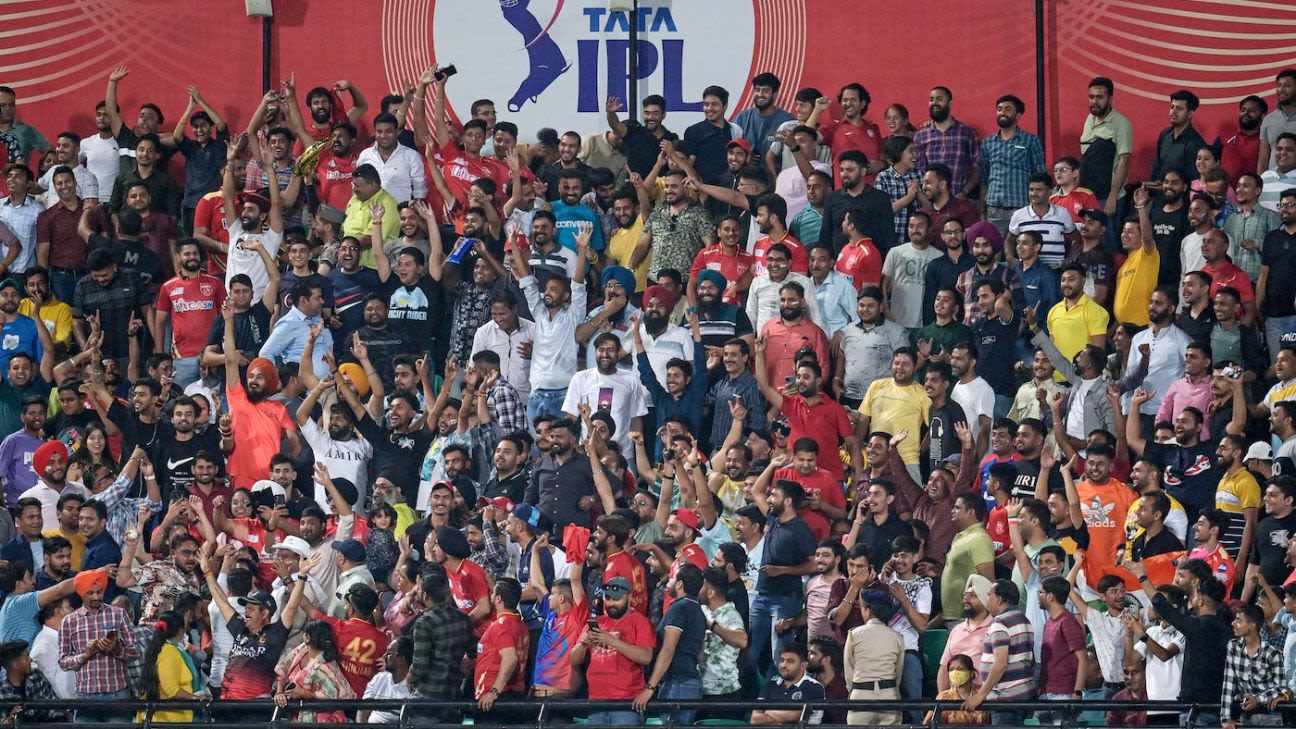“The fact that we’re seeing some highly competitive domestic T20 leagues around the world provides more choice for fans, more choice for players in terms of taking part, which is only going to improve the product particularly around our white-ball tournaments, the ICC World Cups,” Khan said. “Obviously, the way the schedule is structured now and the emergence of these leagues, there has to be a way for us to co-exist. Nothing is going to be removed so we are going to have to co-exist moving forward.”
The fact that Full Members have agreed to retain the WTC over the next eight-year cycle has given Khan confidence that the game’s oldest format still holds relevance.
“The context for red-ball cricket, when there is competition from other formats, competition for the time of players, the World Test Championship is still very dear to countries and players,” he said. “We’ve heard from some of the top stars around the world talking about the importance of Test cricket.
“It’s important we continue to find an opportunity to co-exist, to ensure our schedule moving forward beyond the next cycle, beyond 2027 is something that provides something for everybody, for all the fans. We have the purists who still love watching Test cricket, players who still love playing it, fans who enjoy white ball as well.
“It is something for us to keep looking at, keep considering. We are constantly reviewing it behind the scenes. We know the emergence of these leagues does put pressure on the schedule but we’re confident that at least for the next eight years, continual context will be provided for red-ball cricket.”
“It’s fair to say distributions members will be receiving in the next cycle will be greater than what they’ve received previously,” Khan said. “Payments of what they pay players is purely down to those members. If there are player associations there, they will certainly be negotiating with those, but where there’s not, it’s down to the boards – and particularly with the key players within those boards – to decide what the payment structure looks like moving forward.”
In the immediate glitz of an incoming WTC final, between India and Australia, the outlook is brighter. The ICC expects full houses through the first four days of the final at The Oval, between the two best teams over the course of a two-year cycle. And the league and its structure, they say, has been a success so far.
“For now, it continues to work as it is. We made small changes in terms of playing conditions, the soft signal is not there moving forward, but the actual structure of the two-year cycle is constantly reviewed by the members.
“We take their feedback before progressing to the next year but the great news is WTC has been signed off for the next eight years at least.”
